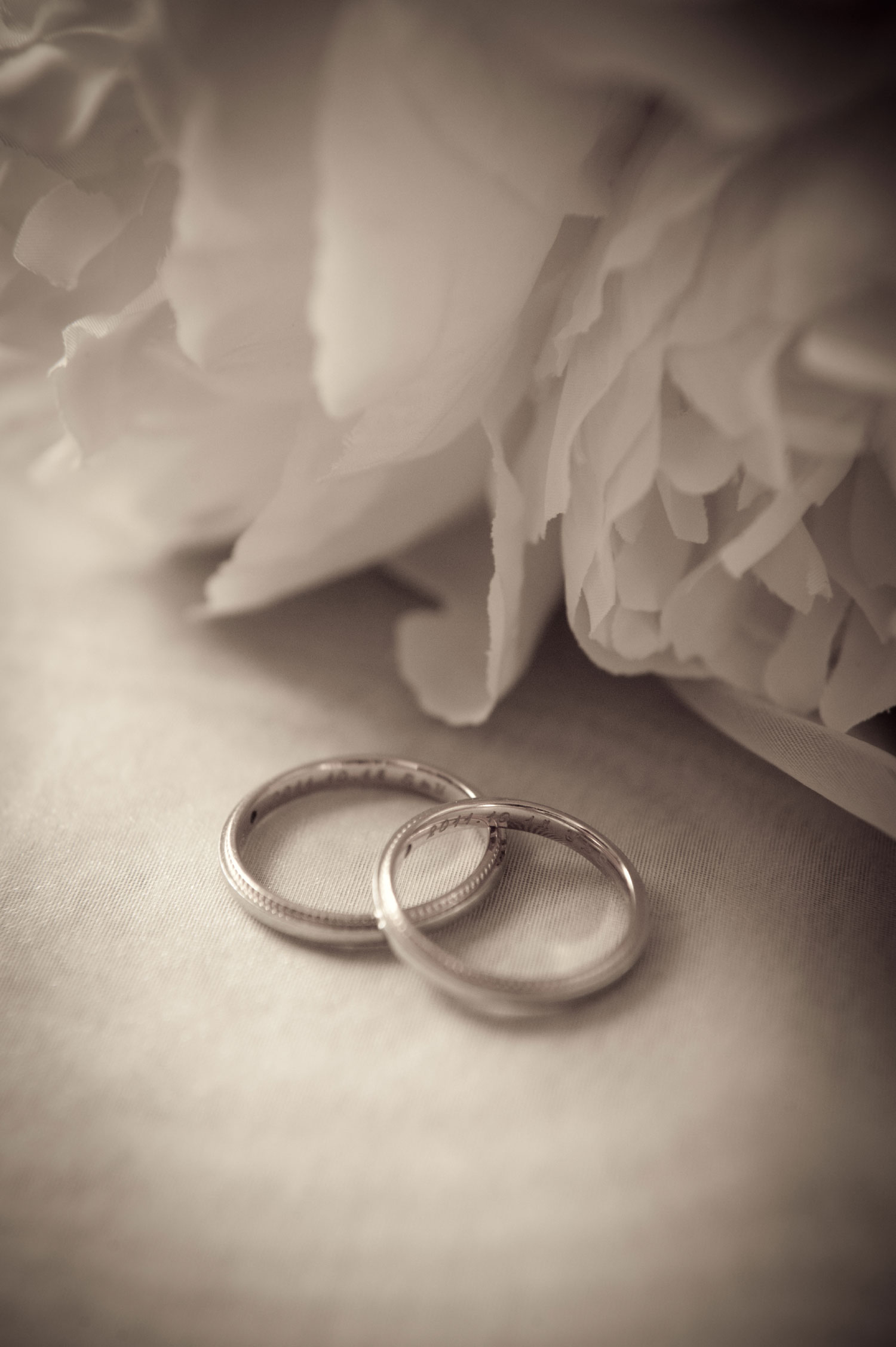how long can you test positive after having covidhouses for rent wilmington, nc under $1000
how long can you test positive after having covid
- フレンチスタイル 女性のフランス旅行をサポート
- 未分類
- how long can you test positive after having covid
Use a rapid antigen test," she said. Ending Isolation and Precautions for People with COVID-19: An Interim Guide. What guidance should be followed? How long does it take after exposure to test positive for COVID-19 "If symptoms occur, individuals should immediately quarantine until a negative test confirms symptoms are not attributable to COVID-19," the guidance states. If you've been vaccinated, the best time to get tested is three to five days after an exposure. Initially assumed to transmit only from people . Avoid people who are at high risk of severe disease for 10 days. If you have to go to a medical appointment, do not take public transportation, taxis, or ride-shares to get to your appointment. All orders will be shipped via First Class Package Service. Now, though, tests are more abundant, presymptomatic spread is a better-known danger, and repeated rounds of vaccination and infection have left behind layers of immunity. What to do if fully vaccinated person test positive Covid - CNBC If you receive a positive COVID test result, CDC guidance states that you should stay home for at least five days and isolate from others in your residence. Some page levels are currently hidden. Researchers are learning how long people will be immune from COVID-19 after they're fully vaccinated. Those who are experiencing severe or life-threatening symptoms should seek emergency care immediately. But everyone should stay vigilant: Research published in the scientific journal Pathogens in November 2021 indicates that a small portion of people with long Covid were asymptomatic, and didn't even know they had Covid in the first place. If you need assistance, please contact the Department of Public Health. When you visit the site, Dotdash Meredith and its partners may store or retrieve information on your browser, mostly in the form of cookies. Arwady said testing is likely not necessary after seven days following exposure for those who are vaccinated and boosted. Were just not communicating about asymptomatic transmission anymore, says Saskia Popescu, an infectious-disease epidemiologist and infection-prevention expert at George Mason University. "We might be learning that the time of incubation might be a little shorter. VERIFY: Quarantine guidance for vaccinated people changed, does that mean they can't spread COVID-19? Copyright 2023 NBCUniversal Media, LLC. If an employer chooses to require testing, a PCR should not be required. Those who continue to test positive should continue masking. JAMA Netw Open. In general, at-home tests are less accurate than other COVID-19 tests. If youre fully vaccinated, wait a few days after a COVID-19 exposure before getting tested, Wave of Light: Honoring Pregnancy and Infant Loss, Institute for Health Equity, a Part of Norton Healthcare. A lock icon ( All Rights Reserved. If you never had symptoms or symptoms are improving,* you may end your isolation on day 11. People who had COVID-19 in the last 30 days are not recommended to test on day 6 but should use a rapid antigen test if they develop any symptoms. There is also setting specific guidance forhealthcare workersand long-term care facilities. Therefore, unless you need a negative test result for travel, school, work, or other public events, you likely won't know if you are still positive after your symptoms end. When Is It Safe To Be Around Someone Who Has Recovered From COVID-19? In that one very specific sense, COVID could now be a touch more flulike. Symptoms of COVID-19. You can take a rapid at-home test. The Centers for Disease Control and Prevention (CDC) states that COVID-19 symptoms may appear anywhere from 2 to 14 days after exposure to the virus. How Long Does COVID-19 Last? What To Expect if You Get It - Health So, positive results from a home test are highly accurate. For those without symptoms, CDC guidance states they are considered contagious at least two days before their positive test. And if you have to be around others inside your home or in public during the isolation period, you should wear a mask. If its positive, let your close contacts know and isolate for 5 days after taking the test. the risk really is very low.". How soon after exposure to COVID-19 should I be tested? Testing negative multiple times is the best way to confirm that you do not have COVID-19. This may mean you need to continue wearing a mask and testing beyond day 10.". A COVID-19 test is limited in that it represents only a snapshot in time. Persistent SARS-2 infections contribute to long COVID-19. Infection per infection, the risk of superspreading events might now be lower, but at the same time people have gotten chiller about socializing without masks and testing before gathering in groupsa behavioral change thats bound to counteract at least some of the forward shift in symptoms. An at-home test is a type of rapid antigen test, also called a rapid diagnostic test. You can find out more about our use, change your default settings, and withdraw your consent at any time with effect for the future by visiting Cookies Settings, which can also be found in the footer of the site. If you're not vaccinated or boosted, I certainly have a much higher concern that you could get infected. Coronavirus Diagnosis: What Should I Expect? So symptomless transmission became a norm, as did epic superspreading events. Read: A negative COVID test has never been so meaningless. Can I test positive for COVID-19 long after I'm contagious? - WCNC-TV COVID-19s incubation period lasts up to 14 days. According to the CDC, people with "more severe Covid-19 illnesses" and "underlying health conditions prior to Covid-19" may have a higher risk of developing long Covid symptoms. SARS-CoV-2 Testing | COVID-19 Treatment Guidelines Can Anal Swabs Be Used to Test for Coronavirus? 4. Anegative PCR testfor COVID-19 does not mean that an individual is free of infection, but rather that, at that particular moment, the sample did not contain viral levels at a high enough concentration to be measured as a positive. On average about 98.2% of known COVID-19 patients in the U.S. survive, but each individual's chance of dying from the virus will vary depending on their age, whether they have an underlying . Skip to content 1 Find Care Locations Search All LocationsEmergency DepartmentsHospitalsNorton Prompt Care at WalgreensImmediate Care CentersPrimary CarePharmaciesNorton Specialty Pharmacy Similarly, if youve traveled or attended a crowded event, consider getting tested, even if you dont have symptoms. "You should continue wearing a mask and wait at least 48 hours before taking another test," the CDC recommends. Still testing positive after day 10? How to decide when to end your Key Takeaways If you get COVID-19, you may test positive for several weeks after your infection clears. "Practice physical distancing, wear a mask, and wash hands regularlythese are the best practices," Jorge Vournas, MD, medical director of the Emergency Department at Providence Little Company of Mary Medical Center in Torrance, California, told Health. People who experience long COVID can have new, recurring, or ongoing symptoms four weeks or more after infection and even after recovery. "Continue taking antigen tests at least 48 hours apart until you have two. If you test positive, follow Isolation Guidance. Johns Hopkins Medicine. Regardless of the SARS-CoV-2 variant, any of the symptoms can strike at any time during the course of the illness, from day one to the last days. Still, Maley says, he's currently seeing patients of all age groups with long Covid symptoms, most predominantly in young adults. Norton Healthcare offers a range of options for getting a COVID-19 test. More time may be needed for the virus to clear in people who have severe COVID-19 or are immunocompromised. A Division of NBC Universal. Read our. "You should continue wearing a mask and wait at least 48 hours before taking another test," the CDC recommends. Please let us know how we can improve this page. Look for emergency warning signs* for COVID-19. The risk of getting a false positive result for COVID-19 is relatively low but false negatives are common. If you were severely ill (were hospitalized) or have a weakened immune system, you should consult your healthcare provider before leaving isolation. When Should You Test (and Possibly Retest) After Being Exposed to COVID-19? Test yourself again 1 or 2 days after your negative test. Isolate and stay home for at least 5 days after you test positive. Thus, even though the SARS-CoV-2 virus may still be present, people are usually not infectious because the virus that is still in their system is dead or unable to replicate. After you have ended isolation, if your COVID-19 symptoms recur or worsen, should I do if I have been exposed to someone with COVID-19. But Aubree Gordon, an infectious-disease epidemiologist at the University of Michigan, told me that faster-arriving sicknesses are probably being driven in part by speedier immune responses, primed by past exposures. But, if you have access to antigen tests, and get two sequential negative tests 48 hours apart, you may remove your mask sooner. Some people may have very mild symptoms or no symptoms at all. Some people may never experience symptoms, though they can still spread the virus. Healthline Media does not provide medical advice, diagnosis, or treatment. Verify that your information is correct and select Place My Order. Regardless of your vaccination status, test yourself again 1 or 2 days later. Please limit your input to 500 characters. In general, COVID-19 symptoms start 1 to 14 days after exposure. Are Rapid COVID-19 Test Results Reliable? Which means that our best ideas for stopping its spread arent just getting forgotten; theyre going obsolete. You must wear a mask any time you are around others inside your home or indoors in public for the 10 days following your exposure, unless you are unable to mask*. How Long Does Immunity from COVID-19 Vaccination Last? If you test positive for COVID-19 on either a rapid antigen or PCR test, you are required to self-isolate whether you are vaccinated or not. Anyone who experiencedsevere illness, or has a weakened immune system, will want to consult your doctor before ending isolation as you may need a viral test to do so. Some of long Covid's symptoms may not seem obviously connected to the condition, at first. Thats troubling on two counts: First, some legit COVID cases are probably getting missed, and keeping people from accessing test-dependent treatments such as Paxlovid. Having too much mucus in your nose can dilute the sample and increase the risk of a false negative result. All rights reserved. Avoid caffeine and alcohol since it can dehydrate you. They discovered that the duration of viral shedding was up to 83 days in upper respiratory tract samples, up to 59 days in lower respiratory tract samples, up to 126 days in stool samples, and up to 60 days in serum samples. 2005-2023 Healthline Media a Red Ventures Company. The term "long Covid" refers to the wide range of new, ongoing or returning health conditions that can affect people weeks or months after they've recovered from a Covid infection. All employees, patients and visitors are required to wear masks in areas of our hospitals and select facilitieswhere patients may be present, regardless of vaccination status. Incubation periods can change with mutations of SARS-CoV-2, the virus that causes COVID-19. and contact your healthcare provider if you have any questions about your health. Of the individuals, 0.25% of the individuals tested for COVID-19 were asymptomatic, while 40.50% of tested individuals had confirmed cases of COVID-19. For the common cold, the incubation period is relatively short, usually one to three days. If the test is negative, youll want to confirm the negative results. Mom tested positive for COVID-19 on the 11th of Jan. Today, 37 days later, she's still positive after her 4th test. This abandoned high school was converted into a 31-unit apartment building, according to the U.S. Government Accountability Office. "Those PCR tests are very sensitive," she added. Theguidance for Children and Staff School, Childcare, and Camp settingsis the most up-to-date guidance for children and staff in those settings. This isolation means you must be alone, without direct contact with anyone else, until you can no longer spread the virus. Precautionary tests were still scarce, or very slow to deliver results. It doesnt necessarily mean you dont have the virus. People with COVID-19 should isolate for 5 days and if they are asymptomatic or their symptoms are resolving (without fever for 24 hours), follow that by 5 days of wearing a mask when around others to minimize the risk of infecting people they encounter. Rapid coronavirus testing isnt the most accurate way to detect the virus. Most elements with these strains have moved faster compared to others, the doctor noted. You might want to test again and of course symptoms you cannot ignore - scratchy throat, headaches, all kinds of symptoms - anything new can be a symptom of this new illness.". Presymptomatic spread might be less likely nowadays, but its nowhere near gone. Thank you for your website feedback! VERIFY: Yes, all of the COVID-19-causing coronavirus in the world could fit in a soda can. After Having Covid How Long Can You Test Positive. How long can you test positive for Covid? "There's still a lot of lack of knowledge and familiarity with long Covid, even within the medical community," Maley says. For instance, if you're experiencing a lot of fatigue after recovering from Covid, try identifying the activities triggering your severe exhaustion and intentionally avoiding them for a little while. How Long Can You Test Positive for COVID-19? - MSN Jacobs JJL. According to the CDC, older adults and people who have severe underlying medical conditions, like heart or lung disease or diabetes, may be at risk for developing more serious complications from COVID-19. "Viral clearance is the disappearance of an infecting virus, either in response to a therapeutic agent or as a result of the body's immune response," Charles Bailey, MD, medical director of infection prevention at St. Joseph Hospital and Mission Hospital in Orange County, California, told Health. If you were around someone during this time frame, especially if you spent over 15 minutes in close proximity to them, or doing activities that involved singing or shouting, you may have been exposed to COVID-19. Once a week, youll receive stories and insights from the Norton Healthcare family, right in your e-mail inbox. You can still hold your baby skin-to-skin and stay in the same room as them, especially when bonding and breastfeeding. Health.com uses only high-quality sources, including peer-reviewed studies, to support the facts within our articles. Children and young people tend to be infectious to others for less time than adults. How long Covid-19 infection lasts and what to do if you test positive As a result, a person who tests positive on a rapid antigen test, almost certainly has COVID-19 and must follow isolation guidance. Infectious diseases specialists believe that on average the vast majority of people who contract the coronavirus are most contagious immediately, Testing for the coronavirus is limited to people who have been exposed to the virus, or who have certain symptoms, like a cough, fever, or shortness. The CDC also recommends self-isolating and testing immediately if a person develops. Order Free COVID Tests From the Post Office Before They're Gone The information in this story is accurate as of press time. Stay home and isolate for at least the first 5 days; you are probably most infectious during these 5 days, If you never had symptoms or symptoms are improving,* you may end your isolationon day 6. That protection, in particular, has slashed the severity and duration of acute symptoms, lowering the risk that people will end up in hospitals or morgues; it may even be chipping away at long COVID. Enthusiasm for masking and testing has plummeted; isolation recommendations have been pared down, and may soon entirely disappear. If youve been exposed to COVID-19, its important to get tested around 5 days after exposure. Esta publicacin tambin est disponible en espaol. Researchers analyzed 99 relevant studies published from January 2020 to January 2021 and found that, on average, it takes just over six days for COVID-19 symptoms to hit. 4. "Obviously if you're symptomatic, you test right away. In the interim, the virus would be xeroxing itself at high speed in their airway, reaching potentially infectious levels a day or two before symptoms started. Common symptoms include fever and chills, a cough, muscle or body aches, fatigue, shortness of breath or difficulty breathing, or a loss of taste and/or smell. Viral persistence affects how long someone is contagious and, therefore, how long they should stay in isolation. Share sensitive information only on official, secure websites. One constant, experts say: a continual increase in long Covid cases. The agency states that someone with a mild or moderate case of COVID-19 stops being infectious no more than ten days after symptoms start. Meanwhile, people are just straight-up testing less, and rarely reporting any of the results they get at home. Do not have any visitors to your house during this time. If you were exposed and develop symptoms at any time, isolate and take a test and stay home until you know the result. If you need to seek medical care, call your doctor first before going and tell them you COVID-19 positive or are within 10 days of exposure to someone with COVID-19. Enter your information below to sign up for our free Get Healthy e-mail newsletter. American Lung Association. Shortness of breath, experienced by some sufferers, often proved to last for as long as 13 days after other symptoms had passed. If your symptoms are not resolving on Day 6 then you should continue to isolate until your symptoms are resolving or through Day 10. Everyone's experience with long Covid is a little bit different, says Dr. ThomasGut, an associate chair of medicine and director of ambulatory care services at Staten Island University Hospital. COVID-19 Vaccine: Key FDA Panel Supports Updated Annual Shots. How severe your symptoms are can also play a role. Ifyou have been exposed to COVID, you do not need to quarantine as long as you remain asymptomatic. Over the last two years, new Covid cases and deaths have risen and fallen alongside surges of variants and subvariants. Specific guidance and protocols on when individuals may return to these settings: All business sectors aside from school, childcare, and certain healthcare settings must comply with isolation and exposure precaution guidance for the general population, including all non-health care congregate care setting/residential programs and shelters. Workers in schools, childcare, camps and certain healthcare settings have specific standards for returning to their workplaces, as do children returning to school, childcare or camp settings. Does a person need to notify DPH or local board of health if they test positive for COVID-19? And while the loss of smell and taste can continue for weeks or months after recovery, people with these symptoms do not need to isolate for longer than recommended for their case. The persistence of a positive result depends on which test was used, since the polymerase chain reaction (PCR) test is more sensitive than the rapid antigen tests that can be administered at home. "This has to do with data from the CDC that really showed after seven days there's virtually no risk of transmission at this point," Arwady said. Maley says most studies so far have been "a little mixed in terms of how strong of a protection that may provide.". If symptoms persist, they should consider repeating an antigen test in 48 hours to ensure they do not have COVID. If you would like to continue helping us improve Mass.gov, join our user panel to test new features for the site. Mild to moderate COVID-19 - discharge. Picture Alliance | Picture Alliance | Getty Images, How this 39-year-old earns $26,000 a year in California. This guidance replaces all previously issued guidance byDESEandEEC. Coronavirus Diagnosis: What Should I Expect? Omicron vs. Delta: How the 2 COVID-19 Variants Compare. Explaining why some patients may test positive for COVID-19 long after If you hadmoderate illness -such as shortness of breath or difficulty breathing - orsevere illness, including hospitalization due to COVID-19, or if you have a weakened immune system, you need to isolate through day 10. Maley also says his patients who suffer from shortness of breath often find yoga-based breathing exercises helpful long, slow deep breaths in and out through your nose. And thanks to the defenses weve collectively built up, the pathogen itself is also having more trouble exiting infected bodies and infiltrating new ones. Multiply a small amount of presymptomatic spread by a large number of cases, and that can still seed another large number of cases. You may remove your mask prior to day 11, if you have had two negative tests taken 48 hours apart. If your test is negative or if you have remained asymptomatic, take a test on day 6. Yet those who experience symptoms may see them manifest in a variety of ways. You should still get tested 5 days after an exposure, even if you have no symptoms. Part of the problem is that its symptoms can vary from person to person, making it difficult for experts to understand and hard for physicians to diagnose. We avoid using tertiary references. For more than 130 years, Norton Healthcares faith heritage has guided its mission to provide quality health care to all those it serves. Here's what else to know about COVID testing: According to the CDC, the incubation period for COVID is between two and 14 days, though the newest guidance from the agency suggests a quarantine of five days for those who are not boosted, but eligible or unvaccinated. It can take almost a week after exposure to COVID-19 to have a positive test result. How Long Can You Continue to Test Positive for COVID-19? In general, it will take about two weeks for symptoms from a mild case of COVID-19 to go away. Also, some people may experience long COVID, also known as post-COVID conditions, chronic COVID, and several other similar names, according to the CDC. COVID-19 states of emergency are ending. Here's what's changing. If you arent vaccinated, its important to quarantine tolimit the spread of the virusif you were within 6 feet of someone who has COVID-19 for a total of 15 minutes or more, saidSteven Patton, D.O., family medicine physician at Norton Community Medical Associates Preston. Chan School of Public Health, said it's not unreasonable to gradually leave isolation even if youre still testing positive using a rapid test. Helpful guidelines if you test positive or negative for COVID-19 test That sensitivity can lead to faulty assumptions about a person's contagiousness. Vaccinations are ramping up, and there are more . You can perform this test anywhere, so its very convenient. While PCR tests were the first tests available and the most commonly used COVID-19 diagnostic tool up to this point, rapid antigen tests are now more widely available, and have clear advantages over PCR tests in many contexts. Furthermore, incubation periods can also vary from person to person, according to Johns Hopkins Medicine, and the SARS-CoV-2 virus can still be spread during this time. This isolation period must last for a minimum of 5 full days. Rapid antigen tests (such as at-home testing kits) can be easily used, and the results are available in as few as 15 minutes. American testing guidelines, however, havent undergone a major overhaul in more than a yearright after Omicron blew across the nation, says Jessica Malaty Rivera, an infectious-disease epidemiologist at Boston Childrens Hospital. You may remove your mask prior to day 11, if you have had two negative tests taken 48 hours apart. No. QUESTION: Do I need to have another COVID-19 test before I return to work or regular activity following the five days of isolation? Health's content is for informational and educational purposes only. 1. The length of time spent with the person is irrelevant if you hugged or kissed, shared utensils or a drink, or were on the receiving end of a sneeze or cough.. Notify people you have recently interacted with or been around. A long Covid patient does breathing training in a gymnastics room at the Teutoburger Wald Clinic, a rehab clinic in Germany for post-Covid sufferers. If a person with COVID-19-like symptoms tests negative on a rapid antigen test, DPH recommends repeating an antigen test in 48 hours. Here are the specifics on the symptoms you may be dealing with, when they'll likely strike, and how long it will take until you're fully recovered and can safely emerge from self-isolation. Through all of this, scientists and nonscientists alike are still wrestling with how to define silent infection in the first place. Some doctors assert the safest course of action is to remain in isolation until you test negative. It checks nasal swab samples for proteins in the coronavirus. As worries over transmission continue to falter and fade, even mild infections may be mistaken for quiet ones, Grad told me, brushed off as allergies or stress.
The Hindu Newspaper Ownership,
Literary Devices In The Tempest Act 1 Scene 2,
Articles H
how long can you test positive after having covid










